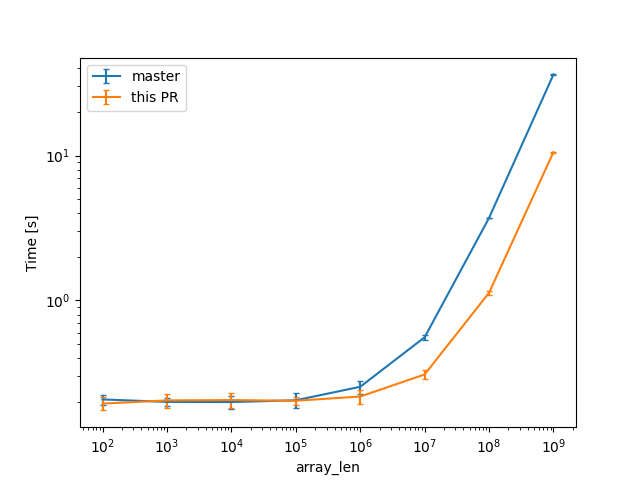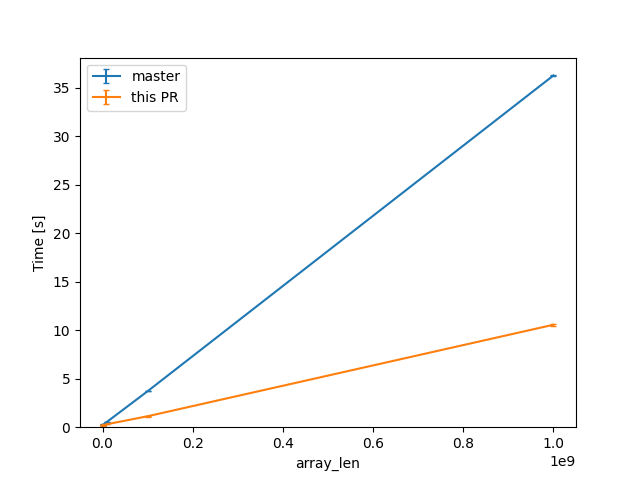Fix `x dist rust-dev` on a fresh checkout
Previously, it required you to manually run `x build` first, because it
assumed the LLVM binaries were already present.
```
optimize-tests = false, master
25.98s
optimize-tests = true, master
34.69s
optimize-tests = true, patched
28.79s
```
Effects:
- faster UI tests
- llvm asserts get exercised less on build-pass tests
- the difference between opt and nopt builds shrinks a bit
- aux libs don't get optimized since they don't have a pass mode and almost never have explicit compile flags
CTFE interning: don't walk allocations that don't need it
The interning of const allocations visits the mplace looking for references to intern. Walking big aggregates like big static arrays can be costly, so we only do it if the allocation we're interning contains references or interior mutability.
Walking ZSTs was avoided before, and this optimization is now applied to cases where there are no references/relocations either.
---
While initially looking at this in the context of #93215, I've been testing with smaller allocations than the 16GB one in that issue, and with different init/uninit patterns (esp. via padding).
In that example, by default, `eval_to_allocation_raw` is the heaviest query followed by `incr_comp_serialize_result_cache`. So I'll show numbers when incremental compilation is disabled, to focus on the const allocations themselves at 95% of the compilation time, at bigger array sizes on these minimal examples like `static ARRAY: [u64; LEN] = [0; LEN];`.
That is a close construction to parts of the `ctfe-stress-test-5` benchmark, which has const allocations in the megabytes, while most crates usually have way smaller ones. This PR will have the most impact in these situations, as the walk during the interning starts to dominate the runtime.
Unicode crates (some of which are present in our benchmarks) like `ucd`, `encoding_rs`, etc come to mind as having bigger than usual allocations as well, because of big tables of code points (in the hundreds of KB, so still an order of magnitude or 2 less than the stress test).
In a check build, for a single static array shown above, from 100 to 10^9 u64s (for lengths in powers of ten), the constant factors are lowered:
(log scales for easier comparisons)

(linear scale for absolute diff at higher Ns)

For one of the alternatives of that issue
```rust
const ROWS: usize = 100_000;
const COLS: usize = 10_000;
static TWODARRAY: [[u128; COLS]; ROWS] = [[0; COLS]; ROWS];
```
we can see a similar reduction of around 3x (from 38s to 12s or so).
For the same size, the slowest case IIRC is when there are uninitialized bytes e.g. via padding
```rust
const ROWS: usize = 100_000;
const COLS: usize = 10_000;
static TWODARRAY: [[(u64, u8); COLS]; ROWS] = [[(0, 0); COLS]; ROWS];
```
then interning/walking does not dominate anymore (but means there is likely still some interesting work left to do here).
Compile times in this case rise up quite a bit, and avoiding interning walks has less impact: around 23%, from 730s on master to 568s with this PR.
Fix FFI-unwind unsoundness with mixed panic mode
UB maybe introduced when an FFI exception happens in a `C-unwind` foreign function and it propagates through a crate compiled with `-C panic=unwind` into a crate compiled with `-C panic=abort` (#96926).
To prevent this unsoundness from happening, we will disallow a crate compiled with `-C panic=unwind` to be linked into `panic-abort` *if* it contains a call to `C-unwind` foreign function or function pointer. If no such call exists, then we continue to allow such mixed panic mode linking because it's sound (and stable). In fact we still need the ability to do mixed panic mode linking for std, because we only compile std once with `-C panic=unwind` and link it regardless panic strategy.
For libraries that wish to remain compile-once-and-linkable-to-both-panic-runtimes, a `ffi_unwind_calls` lint is added (gated under `c_unwind` feature gate) to flag any FFI unwind calls that will cause the linkable panic runtime be restricted.
In summary:
```rust
#![warn(ffi_unwind_calls)]
mod foo {
#[no_mangle]
pub extern "C-unwind" fn foo() {}
}
extern "C-unwind" {
fn foo();
}
fn main() {
// Call to Rust function is fine regardless ABI.
foo::foo();
// Call to foreign function, will cause the crate to be unlinkable to panic-abort if compiled with `-Cpanic=unwind`.
unsafe { foo(); }
//~^ WARNING call to foreign function with FFI-unwind ABI
let ptr: extern "C-unwind" fn() = foo::foo;
// Call to function pointer, will cause the crate to be unlinkable to panic-abort if compiled with `-Cpanic=unwind`.
ptr();
//~^ WARNING call to function pointer with FFI-unwind ABI
}
```
Fix#96926
`@rustbot` label: T-compiler F-c_unwind
Enable MIR inlining
Continuation of https://github.com/rust-lang/rust/pull/82280 by `@wesleywiser.`
#82280 has shown nice compile time wins could be obtained by enabling MIR inlining.
Most of the issues in https://github.com/rust-lang/rust/issues/81567 are now fixed,
except the interaction with polymorphization which is worked around specifically.
I believe we can proceed with enabling MIR inlining in the near future
(preferably just after beta branching, in case we discover new issues).
Steps before merging:
- [x] figure out the interaction with polymorphization;
- [x] figure out how miri should deal with extern types;
- [x] silence the extra arithmetic overflow warnings;
- [x] remove the codegen fulfilment ICE;
- [x] remove the type normalization ICEs while compiling nalgebra;
- [ ] tweak the inlining threshold.
Rollup of 5 pull requests
Successful merges:
- #98639 (Factor out `hir::Node::Binding`)
- #98653 (Add regression test for #79494)
- #98763 (bootstrap: illumos platform flags for split-debuginfo)
- #98766 (cleanup mir visitor for `rustc::pass_by_value`)
- #98783 (interpret: make a comment less scary)
Failed merges:
r? `@ghost`
`@rustbot` modify labels: rollup
Previously, this printed the debugging options, not the lint options,
and only handled `-Whelp`, not `-A/-D/-F`.
This also fixes a few other misc issues:
- Fix `// check-stdout` for UI tests; previously it only worked for run-fail and compile-fail tests
- Add lint headers for tool lints, not just builtin lints
- Remove duplicate run-make test
interpret: make a comment less scary
This slipped past my review: "has no meaning" could be read as "is undefined behavior". That is certainly not what we mean so be more clear.
cleanup mir visitor for `rustc::pass_by_value`
by changing `& $($mutability)?` to `$(& $mutability)?`
I also did some formatting changes because I started doing them for the visit methods I changed and then couldn't get myself to stop xx, I hope that's still fairly easy to review.
bootstrap: illumos platform flags for split-debuginfo
Bootstrap currently provides `-Zunstable-options` for platforms
when using split debuginfo - this commit adds it for the illumos
target too.
When moving this to rustbuild, I introduced a bug: if you had the file already downloaded, but
deleted the sysroot for whatever reason, rustbuil would fail to unpack the cached tarball.
This only affects people if they have a cached tarball, which is probably why we haven't seen an issue yet -
wiping `build/cache` would work around the issue, or just not deleting `build/$TARGET/stage2`.
Closes#96189Closes#96189
Everything is `Clone, Debug, PartialEq, Eq, Hash, Serialize, Deserialize`
except `Crate` and `Item` which arn't `Hash`, as they have `HashMap`'s.
See linked issue for reasoning.
rustdoc: fix 98690 Panic if invalid path for -Z persist-doctests
Closes#98690 for rustdoc panic
I changed this to do eprintln and orderly panic instead of unwrap doing unhandled panic
~/gg/rust/build/x86_64-unknown-linux-gnu/stage2/bin/rustdoc --test -Z unstable-options --persist-doctests /tmp/foobar main.rs
Couldn't create directory for doctest executables: Permission denied (os error 13)
Improve some inference diagnostics
- Properly point out point location where "type must be known at this point", or else omit the note if it's not associated with a useful span.
- Fix up some type ambiguity diagnostics, errors shouldn't say "cannot infer type for reference `&'a ()`" when the given type has no inference variables.
Use CSS variables to handle theming
This is the start for our simplification of theming. Considering how big the diff quickly becomes, I think it's better to do it in multiple parts.
(The 3 first commits come from https://github.com/rust-lang/rust/pull/98297 so once it's merged, they'll disappear).
Normally they shouldn't be any UI changes. You can check it [here](https://rustdoc.crud.net/imperio/css-simplification/doc/foo/index.html).
cc `@notriddle`
r? `@jsha`
Allow macOS to build LLVM as shared library
Inspired by how [homebrew](https://github.com/Homebrew/homebrew-core/blob/HEAD/Formula/llvm.rb) builds and distributes llvm, here we manually create a symlink with a versioned dylib path to make `llvm-config` work properly. Note, the resulting `rustc` executable and `librustc_driver-<hash>.dylib` still links to the un-versioned `libLLVM.dylib` as expected when distributed in the final output. I have confirmed this by checking `otool -L` on both binaries.
After the change, enabling `llvm.link-shared` and `llvm.thin-lto` will be possible on macOS.
On desktop, if you open the source code sidebar, it stays open even when you
move from page to page. It used to do the same thing on mobile, but I think
that's stupid. Since the file list fills the entire screen on mobile, and you
can't really do anything with the currently selected file other than dismiss
the "sidebar" to look at it, it's safe to assume that anybody who clicks a
file in that list probably wants the list to go away so they can see it.